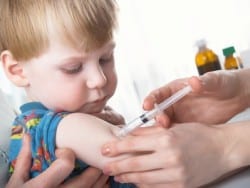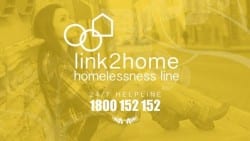GP News – Nov ’15
Changes to the Healthy Kids Check and MBS items
Healthy Kids Check:
 From 1 November 2015, Healthy Kids Checks provided by general practitioners (GPs) using the MBS health assessment items will no longer be available.
From 1 November 2015, Healthy Kids Checks provided by general practitioners (GPs) using the MBS health assessment items will no longer be available.
Healthy Kids Checks provided on a GP’s behalf by a practice nurse or Aboriginal and Torres Strait Islander Health Practitioner under MBS item 10986 will cease, and item 10986 will be removed from the MBS.
A GP may continue to provide a health assessment service for a patient, including a child, using existing MBS time-tiered general attendance items.
Aboriginal and Torres Strait Islander children will continue to have access to health assessment services under item 715, which can be provided every nine months and is more comprehensive than the Healthy Kids Check.
Children will still be able to receive health assessments in state and territory – funded Infant Health clinics. The Healthy Kids Check duplicates services provided by state and territory governments.
For more information CLICK HERE
To find your nearest Early Childhood Clinic CLICK HERE
Immunisation: Changes occurring 1 January 2016
 The Australian Government has announced new immunisation requirements and catch-up arrangements which will take effect 1 January 2016. These measures are in place to assist with improving vaccination coverage rates across the entire Australian community.
The Australian Government has announced new immunisation requirements and catch-up arrangements which will take effect 1 January 2016. These measures are in place to assist with improving vaccination coverage rates across the entire Australian community.
What are the new immunisation requirements?
From 1 January 2016 (subject to the passage of legislation):
- Parents who do not fully immunise their children (up to 19 years of age) will cease to be eligible for Child Care Benefit, Child Care Rebate and the Family Tax Benefit Part A end of year supplement (family assistance payments).
- Children with medical contraindications or natural immunity for certain diseases will continue to be exempt from the requirements.
- Conscientious objection and vaccination objection on non-medical grounds will no longer be a valid exemption from immunisation requirements.
- To support these changes, the Australian Childhood Immunisation Register (ACIR) is being expanded. From 1 January 2016 you will be able to submit the details of vaccinations given to persons aged less than 20 years to be recorded on the ACIR.
- The process for ordering catch-up vaccine will be the same process used by immunisation providers for other Commonwealth or state immunisation programmes.
Catch-up arrangements
1. Free catch up for children under 10 years of age
From 1 January 2016, all states and territories will be distributing free National Immunisation Program vaccines for all children under the age of 10 that require catch-up. This arrangement will be ongoing.
2. Free catch up for young persons aged 10 to 19 years of families who currently receive family assistance payments (time-limited: 1 January 2016 to 31 December 2017)
From 1 January 2016, this time-limited catch up programme provides free vaccines to families who currently receive family assistance payments, who do not have a valid medical exemption, and now wish to immunise their children in order to continue to receive family assistance payments.
For more about catch-up arrangements CLICK HERE
For information about the expansion of Australia’s Immunisation Registers CLICK HERE
New National Diabetes Strategy
 The Australian Government has released a new national strategy to tackle diabetes, which is emerging as a major chronic illness for patients – and threat to the health of the economy – in Australia.
The Australian Government has released a new national strategy to tackle diabetes, which is emerging as a major chronic illness for patients – and threat to the health of the economy – in Australia.
To view the media release CLICK HERE
Homelessness: Local Service
 A locally funded specialist homelessness service operating in the Northern Sydney district can help people who may be homeless or at risk of being homeless.
A locally funded specialist homelessness service operating in the Northern Sydney district can help people who may be homeless or at risk of being homeless.
Coordinated by link2home, the service offers single women and men, young people and families a single state-wide information and referral service 24 hours a day, 7 days a week.
Following an assessment, link2home staff will refer the individual or family to a local service for help and support.
Support for homelessness as a result of domestic violence is available.
For information and contact numbers CLICK HERE
Ebola Screening Measures Downgraded
The Australian Government will begin downscaling domestic border screening measures for Ebola at airports and seaports to reflect the decreased risk to Australia.
To view the media release CLICK HERE
My Health Record replaces PCEHR (Personally Controlled Electronic Health Record) and Minister for Health announces trial
 The PCEHR was introduced in July 2012 in an attempt to provide an integrated, personally controlled electronic health record that could be shared with health providers. Over the last three years there has been limited uptake of the opt-in model of the PCEHR with around 2.5 million consumers currently registered for a record.
The PCEHR was introduced in July 2012 in an attempt to provide an integrated, personally controlled electronic health record that could be shared with health providers. Over the last three years there has been limited uptake of the opt-in model of the PCEHR with around 2.5 million consumers currently registered for a record.
Whilst a majority of General Practices nation-wide (approximately 72%) are eHealth ready less than one third of this practice are routinely uploading information into their patients’ records. Public hospitals in the Sydney North Health Network catchment have been connected to the PCEHR since March 2015 enabling discharge summaries as well as GP authored Shared Health Summaries to be posted to the record.
To encourage broader use of the record and to increase the uploading of clinical content, the government committed further funding in last May’s budget and recently introduced legislation into parliament to change the name of the PCEHR to the My Health Record.
Minister Sussan Ley has also recently announced that a trial of an opt-out model of participation for the My Health Record will commence in early 2016 and be conducted in the Nepean/Blue Mountains area of Western Sydney and the Far North Queensland region. It is envisaged the trials may encompass a demographic of nearly 1 million participants who will be able to cancel their My Health Record at any stage throughout the trial.
The Australian Health and Hospitals Association (AHHA) has been commissioned to develop a My Health Record education and training package and recently conducted a survey targeting GPs, allied health, pharmacy and aged care providers to canvass what content the training package should comprise.
Consideration is also being given to changing some of the requirements for the GP eHealth Practice Incentive Payment (ePIP) to make funding contingent upon demonstrated active use of the My Health Record system. This could include uploading Shared Health Summaries for chronic and complex patients, greater utilisation of secure messaging and the adoption of assisted consumer registration. If accepted the proposed changes would likely be introduced at the beginning of the next PIP funding quarter in February 2016, however both the RACGP and AMA have expressed opposition to modifying the ePIP criteria.
Article by Helen Purdy, PCAI Coordinator – eHealth. Email Helen – hpurdy@snhn.org.au
Falls Prevention Trial
Falls are common in older people but they can be prevented. Prof Lindy Clemson and a team of multidisciplinary researchers including GPs have developed a clinical decision tool and resources to help GPs identify people at risk of falling and provide tailored management options. The clinical decision tool is available in both hard copy and electronic (compatible with Best Practice and Medical Director) formats.
SNHN is seeking GP practices to trial these (Cat 1 and Cat 2 RACG QI&CPD points on offer). Amy Tan, project coordinator, can visit your practice to show you the tools/resources and speak to you about how you can participate. Book a time with her today by calling 9036 7463 or email: amy.tan@sydney.edu.au.
For more details please see this flyer. Closing date for expression of interest: 30 June 2016.
Falls Prevention GP Survey winners
The winners in the iSOLVE Fall prevention GP survey have now been announced.
Winners in the $200 GP prize draw are:
- Dr Patricia Brazier (Neutral Bay Medical Centre)
- Dr Barry Mayes (North Turramurra Medical Practice)
Winners in the $50 practice manager/practice nurse prize draw are:
- Alison Forbes (Kendall Street Medical Centre)
- Gabrielle Clancy (Pennant Hills Medical Centre)
- Peta Niven (The Cottage Surgery)
Amy Tan, iSOLVE Research Project Coordinator, is currently contacting winners to organise delivery of their prize. Please email Amy if you have won a voucher and not been contacted e: amy.tan@sydney.edu.au (by 30 November 2015).You can still enter the survey, click here. Survey responses will be pooled together and entered into the next prize draw in mid 2016 (closing date to be announced).
For more information about the iSOLVE project, visit: https://sydneynorthhealthnetwork.org.au/isolve/.
[contentblock id=1 img=gcb.png]
